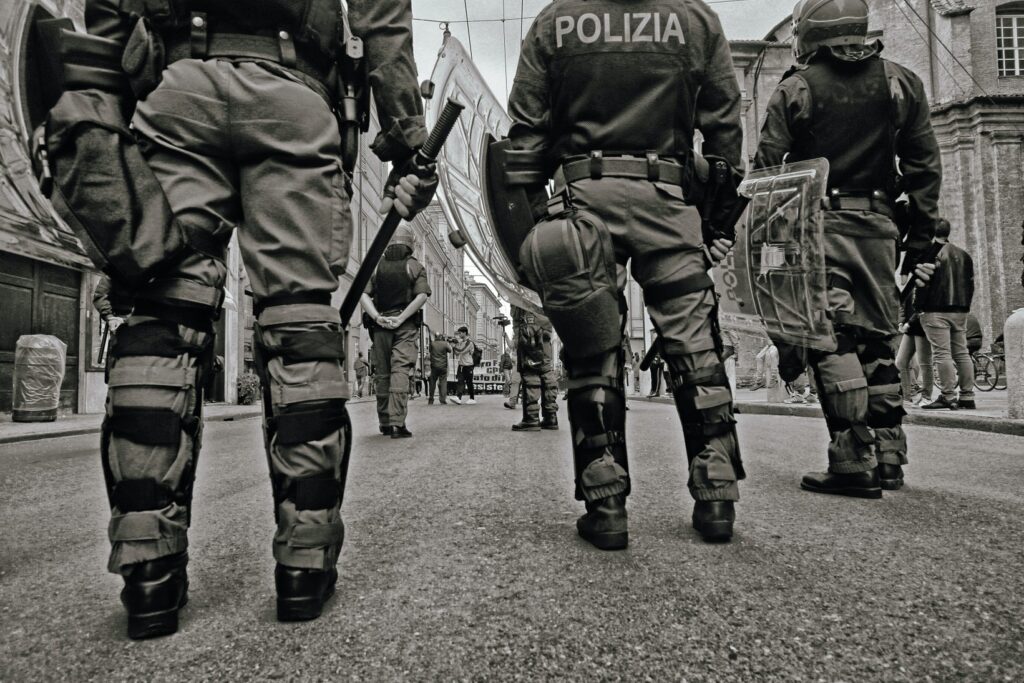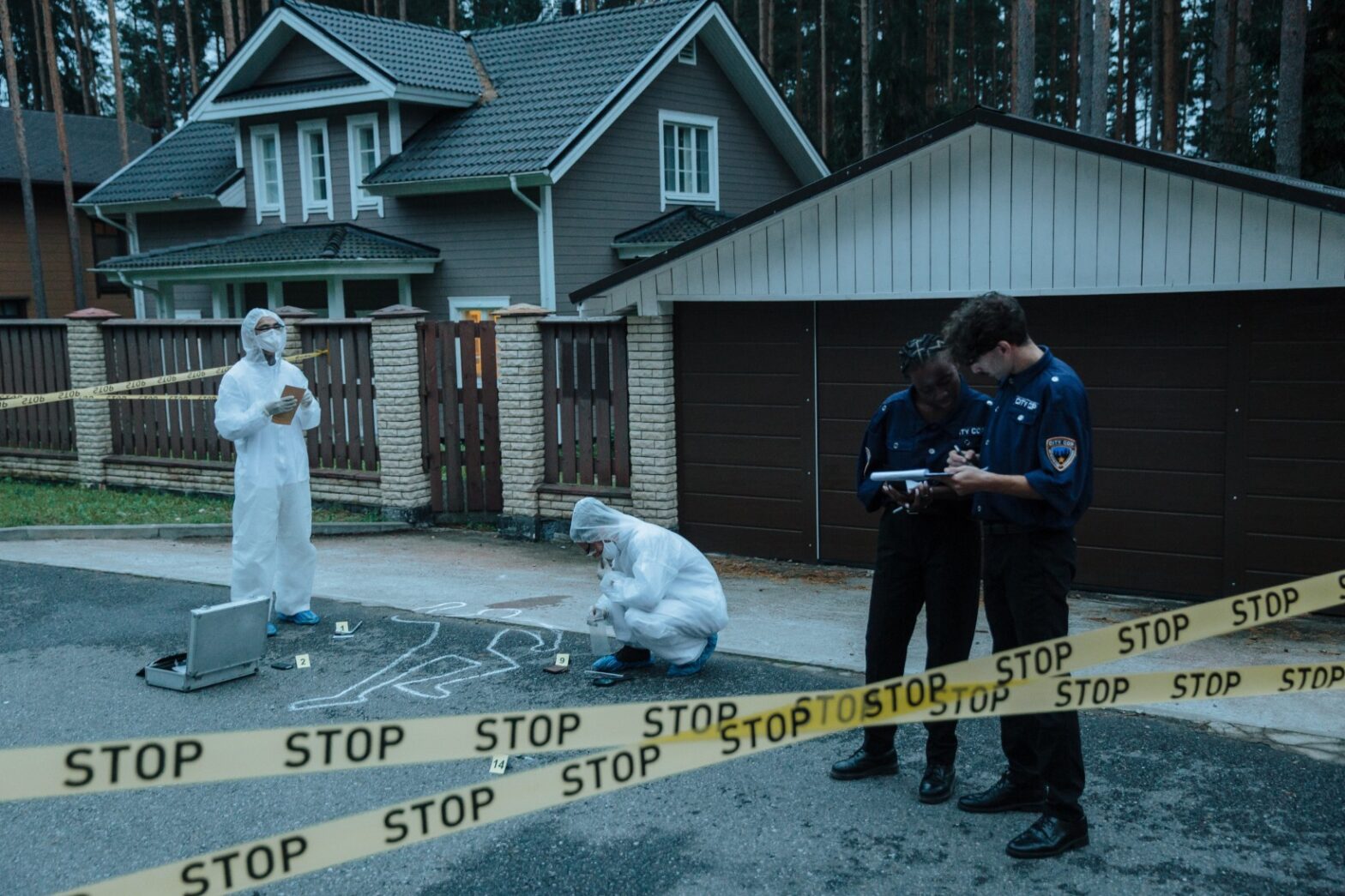St. Louis Shooting: A Call for Unity and Compassion
On Wednesday, August 24, 2023, a disturbing incident unfolded in Affton, Missouri near St. Louis shooting a man and critically injured by police. This incident, occurring just after 7 p.m. in the 9100 block of Rambler Drive, near the intersection of MacKenzie and Gravois roads, has left a community grappling with the aftermath and has ignited conversations on the critical issue of police-involved shootings.
The St. Louis Shooting Tragedy
According to the St. Louis County Police Department, officers were responding to a domestic violence call when they encountered a man sitting on a porch, gripping two firearms. Their efforts to engage the man in conversation were met with an alarming escalation, resulting in an exchange of gunfire between the individual and two officers. Tragically, the man sustained life-threatening injuries and was rushed to a local hospital. Thankfully, no officers were harmed in the incident. As the investigation unfolds, numerous questions remain unanswered, including the sequence of shots fired and the factors leading up to this harrowing encounter.
A Snapshot of the Current Climate
This incident in Affton emerged against a backdrop of heightened gun violence across the United States in 2023. The Gun Violence Archive has documented over 400 mass shootings this year alone, characterizing a mass shooting as an incident in which four or more individuals, excluding the shooter, are wounded. This pervasive issue has raised questions about gun control and the urgent need for comprehensive reforms.
Additionally, the St. Louis shooting takes place amid a national dialogue on police reform. Recent years have witnessed several high-profile cases of police brutality, which have galvanized communities to demand change, accountability, and justice.
Impacts on the Community

The repercussions of the St. Louis shooting reverberate deeply within the community. The injured man remains in critical condition, eliciting profound distress among his family and friends. The officers involved, too, grapple with the psychological aftermath, as they are placed on paid administrative leave while an investigation unfolds.
The Affton community itself finds its sense of security shaken. Residents grapple with concerns about their own safety and that of their loved ones. A fundamental question lingers: what circumstances culminated in the St. Louis shooting, and why did it transpire?
The Vital Role of De-Escalation and Crisis Intervention Training
The Affton tragedy underscores the vital importance of equipping law enforcement with de-escalation and crisis intervention training. De-escalation techniques involve the use of effective communication and other strategies to reduce tensions and prevent confrontations. Meanwhile, crisis intervention involves providing critical support to individuals undergoing mental health crises.
These training approaches can be pivotal in aiding police officers to safely manage situations involving armed individuals, potentially averting tragic outcomes and instances of police violence.
The Wider Context of Police Shootings
To fully grasp the implications of the Affton tragedy, we must consider the wider context of police-involved shootings in the United States. This issue is multifaceted, shaped by a complex interplay of factors including gun accessibility, mental health, socioeconomic disparities, and the role of law enforcement.
The State of Gun Violence in the US
As previously mentioned, 2023 has witnessed a staggering number of mass shootings across the United States. The Gun Violence Archive has meticulously tracked these incidents, providing a sobering account of the scale of this crisis. The sheer frequency of these events underscores the pressing need for comprehensive gun control measures.
A robust discussion on stricter gun laws has emerged as a critical component of addressing the issue. Enacting universal background checks, banning assault weapons and high-capacity magazines, and adopting red flag laws are just a few strategies that can contribute to curbing access to firearms among individuals who pose a danger to themselves or others.
Mental Health Care and Its Implications
The St. Louis shooting, like many police-involved shootings, raises questions about the role of mental health in these incidents. It is not uncommon for individuals involved in such altercations to exhibit signs of mental distress. This issue underscores the importance of enhancing access to mental health care and early intervention.
By bolstering mental health care systems, we can better identify and treat individuals at risk before they resort to violence. The intertwining of mental health issues and gun violence represents a complex challenge, demanding a multifaceted approach.
Addressing Root Causes of Violence

Beyond mental health and gun control, the Affton tragedy points to broader societal factors that contribute to violence. Poverty, inequality, and social exclusion are among the root causes that amplify the risk of violent incidents.
Addressing these issues is not only a moral imperative but also a strategic move to reduce violence in society. Comprehensive efforts to combat these disparities can have a profound impact on the overall level of violence.
The Role of Police Training and Accountability
Returning to the core issue of police involvement in the St. Louis shooting, we recognize that the tragic Affton incident underscores the importance of thorough police training and accountability measures. De-escalation and crisis intervention training can empower law enforcement officers to make split-second decisions while minimizing harm to all parties involved.
Furthermore, establishing transparent and robust mechanisms for accountability is essential to maintain public trust in law enforcement. When incidents like the one in Affton occur, swift and impartial investigations must be followed to ensure justice is served.
The Human Toll
It is essential to recognize the human toll of police-involved shootings. The wounded individual in Affton remains in critical condition, his family and friends enveloped in anguish. The officers involved are grappling with the emotional aftermath of a traumatic experience. The community itself is left traumatized, questioning their safety and the events leading to the tragedy.
Hope for Healing and Change
Amidst the pain and questions that follow incidents like the one in Affton, there remains hope for healing and change. Communities can come together to support the injured, the officers, and one another. This collective resilience can be a powerful force for positive transformation.
Calls for police reform continue to reverberate across the nation. The Affton tragedy is a stark reminder that more work is needed to ensure the safety and well-being of all citizens. By fostering an open dialogue and actively listening to diverse perspectives, communities can collaborate with law enforcement to develop strategies that prioritize public safety while respecting individual rights.
Conclusion
The tragic St. Louis shooting, in Missouri, is a heart-wrenching reminder of the challenges faced by law enforcement officers and the urgent need for comprehensive police training. It also underscores broader societal issues, including gun violence, mental health, and socioeconomic disparities. To prevent future shootings, a multi-faceted approach, including stricter gun laws, improved mental health care, and addressing root causes of violence, is necessary. In these difficult times, communities can find strength in unity and work together to foster positive change.











